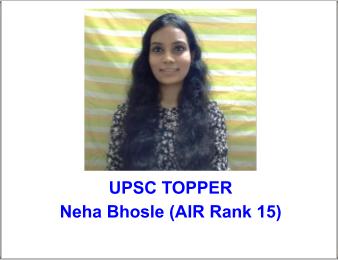(Download) UPSC Topper Study Notes - Sociology Optional - Neha Bhosle (AIR-15)

(Download) UPSC Topper Study Notes - Sociology Optional - Neha Bhosle (AIR-15)
Sociology Optional Study Notes :
Content :
Sociology Optional Notes Paper-1
1.SOCIOLOGY - THE DISCIPLINE
- Modernity and social changes in Europe and emergence of
- Sociology 1
- Scope of the subject 12
- Sociology and common sense 28
2. SOCIOLOGY AS SCIENCE
- Science, scientific method and critique 32
- Major theoretical strands of research methodology 39
- Positivism and its critique 43
- Fact value and objectivity 47
- Non - positivist methodologies 51
3. RESEARCH METHODS AND ANALYSIS
- Qualitative and quantitative methods 57
- Techniques of data collection 69
- Variables, sampling, hypothesis, reliability and validity 85
4. SOCIOLOGICAL THINKERS
- Karl Marx - Historical materialism, mode of production,alienation, class struggle 97
- Emile Durkheim - Division of labour, social fact, suicide,religion and society 103
- Max Weber - Social action, ideal type, authority,bureaucracy, protestant ethic and the spirit of capitalism 115
- Talcot Parsons - Social system, pattern variables 129
- Robert K. Merton - Latent and manifest functions,conformity and deviance, reference groups 140
- Mead - Self and identity 146
5. STRATIFICATION AND MOBILITY
- Concepts - equality, inequality, hierarchy, exclusion,poverty and deprivation 155
- Structural functionalist theory, Marxist theory, Weberian theory 164
- Dimensions - class, status groups, gender, ethnicity and race 172
- Social mobility - open and closed systems, types of mobility, sources and causes of mobility 184
6 WORK AND ECONOMIC LIFE
- Social organization of work in different types of society -slave society, feudal society, industrial capitalist society 192
- Formal and informal organization of work 200
- Labour and society 207
7 POLITICS AND SOCIETY
- Sociological theories of power 209
- Power elite, bureaucracy, pressure groups and political parties 223
- Nation, state, citizenship, democracy, civil society,ideology 232
- Protest, agitation, social movements, collective action,revolution 260
8 RELIGION AND SOCIETY
- Sociological theories of religion 272
- Types of religious practices: animism, monism, pluralism,sects, cults 283
- Religion in modern society: religion and science,secularization, religious revivalism, fundamentalism 294
9 SYSTEMS OF KINSHIP
- Family, household, marriage 307
- Types and forms of family 320
- Lineage and descent 322
- Patriarchy and sexual division of labour 325
- Contemporary trends 329
Click here to Download Full Notes (Paper-1)
Sociology Optional Notes Paper-2
Content :
INTRODUCING INDIAN SOCIETY
A1 PERSPECTIVES ON THE STUDY OF INDIAN SOCIETY
- Indology (G.S. Ghurye) 1
- Structural functionalism (M.N. Srinivas) 11
- Marxist sociology (A.R. Desai) 29
A2 IMPACT OF COLONIAL RULE ON INDIAN SOCIETY
- Social background of Indian nationalism 34
- Modernization of Indian Tradition 39
- Protests and movements during the colonial period 55
- Social reforms 58
SOCIAL STRUCTURE
B1 RURAL AND AGRARIAN SOCIAL STRUCTURE
- The idea of Indian village and village studies 59
- Agrarian social structure - evolution of land tenure system,land reforms 65
B2 CASTE SYSTEM
- Perspectives on the study of caste systems: GS Ghurye, M N Srinivas, Louis Dumont, Andre Beteille 73
- Features of caste system 96
- Untouchability - forms and perspectives 101
B3 TRIBAL COMMUNITIES IN INDIA
- Definitional problems 107
- Geographical spread 111
- Colonial policies and tribes 117
- Issues of integration and autonomy 142
B4 SOCIAL CLASSES IN INDIA
- Agrarian class structure 149
- Industrial class structure 152
- Middle classes in India 154
B5 SYSTEMS OF KINSHIP IN INDIA
- Lineage and descent in India 158
- Types of kinship systems 161
- Family and marriage in India 163
- Household dimensions of the family 166
- Patriarchy, entitlements and sexual division of labour 168
B6 RELIGION AND SOCIETY
- Religious communities in India 174
- Problems of religious minorities 176
SOCIAL CHANGES IN INDIA
C1 VISIONS OF SOCIAL CHANGE IN INDIA
- Idea of development planning and mixed economy 182
- Constitution, law and social change 185
- Education and social change 188
C2 RURAL AND AGRARIAN TRANSFORMATION IN INDIA
- Programmes of rural development, Community
- Development Programme, cooperatives, poverty
- alleviation schemes190
- Green revolution and social change 196
- Changing modes of production in Indian agriculture 198
- Problems of rural labour, bondage, migration 200
C3 INDUSTRIALIZATION AND URBANIZATION IN INDIA
- Evolution of modern industry in India 202
- Growth of urban settlements in India 204
- Working class: structure, growth, class mobilization 207
- Informal sector, child labour 210
- Slums and deprivation in urban areas 212
C4 POLITICS AND SOCIETY
- Nation, democracy and citizenship 214
- Political parties, pressure groups, social and political elite 219
- Regionalism and decentralization of power 224
- Secularization 230
C5 SOCIAL MOVEMENTS IN MODERN INDIA
- Peasants and farmers movements 232
- Women’s movement 236
- Backward classes and Dalit movement 239
- Environmental movements 242
- Ethnicity and identity movements 247
C6 POPULATION DYNAMICS
- Population size, growth, composition and distribution 251
- Components of population growth: birth, death, migration 254
- Population policy and family planning 258
- Emerging issues: ageing, sex ratios, child and infant
- mortality, reproductive health 261
C7 CHALLENGES OF SOCIAL TRANSFORMATION
- Crisis of development: displacement, environmental
- problems and sustainability 269
- Poverty, deprivation and inequalities 272
- Violence against women 275
- Caste conflicts 278
- Ethnic conflicts, communalism, religious revivalism 282
- Illiteracy and disparities in education 287
Miscellaneous 290
Click here to Download Full Notes (Paper-2)
<< Go back to Main Page
Courtesy: Neha Bhosle

